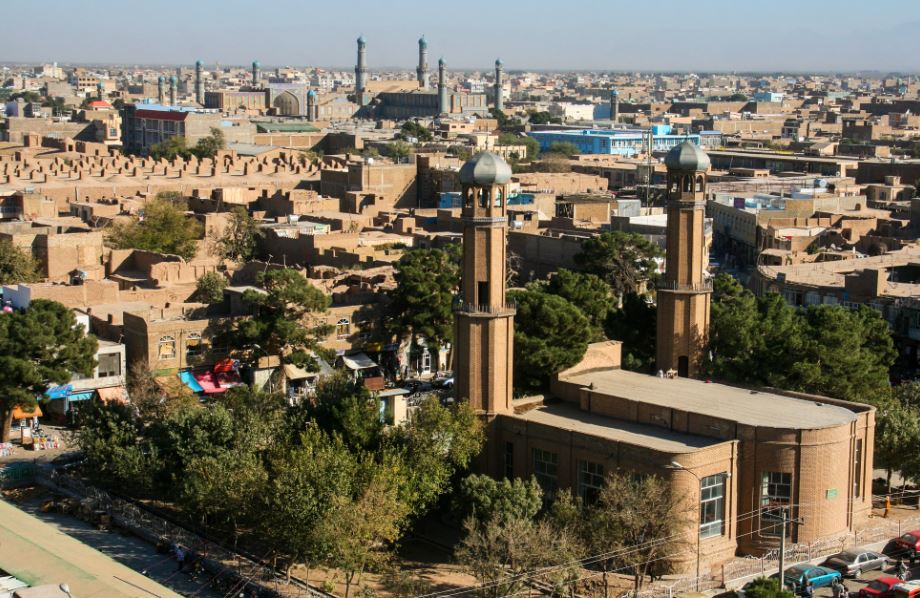Benefits of Afghanistan’s industrialisation
The Government of Afghanistan is bouncing back under the democratically elected, reform-minded President Mohammad Ashraf Ghani Ahmadzai. With bold initiatives to fast-track the pace of industrialisation through Special Economic Zones (SEZs), Malcolm Dias analyses how this spells good news for investors and Middle East’s logistics and construction companies
As part of Afghanistan’s economic development plan, its government signed a memorandum of understanding (MoU) with the US-headquartered Chord Group to establish a series of Special Economic Zones (SEZs) within the country.
The signing took place earlier this year in Dubai, under the theme ‘Commercialisation of Military Bases in Afghanistan’.
Since the election of the National Unit Government in September 2014, Afghanistan has implemented a vast array of vital reforms to enable the country to develop full economic independence. These reforms have seen significant changes in the construction, mining, healthcare, banking and the agricultural sectors among others.
Earlier this year, the Afghan government established a SEZ Committee, to review how these tax and labour-concessioned zones could be used to stimulate local employment and attract foreign direct investment.
A recent study and recommendations by Harakat, a non-profit Afghani organisation, concluded that the establishment of SEZs in Afghanistan would send a signal to investors that the country is committed to supporting private sector development, and could encourage higher levels of foreign investment, in line with the conclusions of the London Conference on Afghanistan held in December 2014.
This eventually led to the establishment of the Afghan Airfield Economic Development Commission (AAEDC), chaired by Mohammed Daoud Sultanzoy.
Sultanzoy stressed that Afghanistan is a country potentially rich in minerals, agriculture, horticulture, power generation and energy. He emphasised that several factors make Afghanistan the prime destination for investment. “Afghanistan is the new frontier for trade, commerce and investment. We have a growing population base of 35 million people clamouring for consumer goods, an educated workforce, improved infrastructure with the recent building of thousands of miles of highways in addition to instituting the legal framework for secure banking and financial transaction, property ownership laws and other legislative requirements.”
Sultanzoy lauded the Afghan Government’s decision to create a series of ‘Special Economic Zones’ (SEZs) that allows the Commission to create a managed and optimised environment in Afghanistan to attract foreign investors into key sectors of the country’s economy. Investment in these sectors in turn will transform other industries, creating direct and indirect local employment. It also simplifies the issuance of visas, customs and other processes required to bring specialist labour and equipment required for business operation within the SEZ facilities.
Allaying fears on the security situation in Afghanistan, Sultanzoy said: “The biggest problem when it comes to Afghanistan is perception. I am here to say that although we sporadically hear of reports of violence, the country by far is safe and secure and we are open for business. Afghanistan is full of opportunities and there is a lot of promise and potential for investors coming into the country. We now have the legislative and legal framework and physical infrastructure in place to attract businesses. We are ready and willing to do business with us.”
Sultanzoy also commented that the peace dividend derived as a result of pursuing economic reforms and taking new initiatives would benefit the region. “To date, we have received encouraging responses and mounting interest from companies and governments from the Unites States of America, China, Russia, the GCC nations, European and Far Eastern countries and from the hinterland including Iran, the CIS countries and some African countries—truly an eclectic mix.”
The signing of the memorandum of understanding between the Chord Group and the Government of Afghanistan represents an important step in realising the new economic vision for the country.
Jason Blick, the Miami, chair of the Chord Group said: “Logistics, transportation, construction and supply chain companies will be the biggest beneficiaries of opportunities coming out of Afghanistan. Geographically, the shared borders and the strong agricultural base, along with the opportunity to modernise its national infrastructure, are good foundations for an effective SEZ that can have a long-term impact on a country.”
Sultanzoy observed: “In order for Afghanistan to create a true free market for business and enterprise that provides a solid regulatory framework we sought out for industry leaders that can help guide us toward creating effective implementation plans. I am pleased to report the recent relationship developed with The Chord Group to add value to AAEDC as we further our Invest Afghanistan campaign.”





